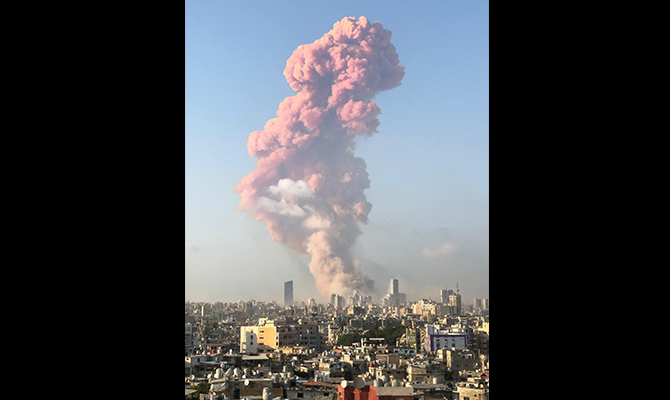AID TO THE CHURCH IN NEED (ACN) is increasing its aid program for the Christians affected by the Aug. 4 massive explosion in Beirut with a total of $6M. The aid mainly targets the repair and reconstruction of Church-related buildings within the immediate vicinity of the explosion.
Among the projects that the organization has agreed to support is the repair of the iconic Maronite Cathedral of Saint George in the center of Beirut, a powerful symbol of the historic Catholic presence in the Lebanese capital. It was massively damaged by the blast. ACN will also be funding the reconstruction work on the Greek Melkite Church of Saint Savior, which was built in 1890.
ACN will also be helping with the reconstruction of various convents of women religious, including the one by the hospital of the Sisters of the Holy Rosary and the central mother house of the congregation of the Sacred Hearts of Jesus and Mary.
“The initial priority is to provide the necessary funds to complete the essential emergency repair work before the arrival of winter, in order to forestall still greater damage, caused by the winter rains for example, and at the same time to make these buildings usable,” explained Thomas Heine-Geldern, the executive president of ACN.
Immediately following the tragedy, ACN provided initial emergency aid of $300,000 for the support of 5880 families who had been made homeless by the blast. Now the charity is turning its attention to the repair and reconstruction of the vital infrastructure of the various Christian communities and rites in the country. This support will be provided in close collaboration with the local Churches and other Catholic aid agencies.
It was on Aug. 4 that more than 2500 ton of ammonium nitrate stored in the port of the City of Beirut exploded in what was one of the most massive non-nuclear explosions ever recorded, causing at least 200 deaths, injuring 6500 people injured, and damaging some 90,000 homes. The communities closest to the blast, and consequently the most seriously affected by it, were mainly those in the Christian suburbs.
Even before the explosion the situation in the country was dire, since Lebanon was already facing a crisis on many levels. These include the healthcare crisis resulting from the COVID-19 pandemic and the economic crisis caused by the growing burden of public debt and the collapse of the Lebanese pound, which has lost more than 80 percent of its previous value against the dollar.
“The Christians of Lebanon feel very much alone at the present time and are considering emigration as a solution to their problems. St. John Paul II said that Lebanon has a special mission in the Middle East. ACN will always remember it. We will therefore continue to support the Christians in this country, not leaving them to face this task alone,” Mr. Heine-Geldern insisted.
By: Maria Lozano
Source: church in need






